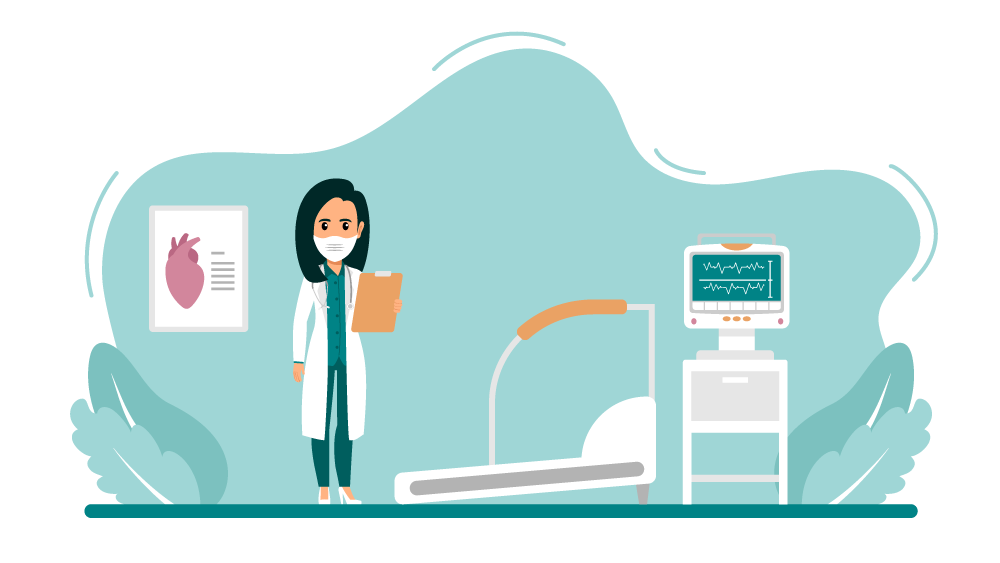Did you know that the value of the oral care/hygiene market is expected to reach $53.3 billion by 2025? That’s up from just $45.8 billion in 2020.
If those numbers tell us anything, it’s that this industry is white-hot and growing. When you think of entering the dental industry, you might think strictly of dentists and dental surgeons. However, there are plenty of positions that are easier and quicker to obtain.
This includes lucrative, flexible, and well-paying dental assistant jobs! Today, we’re sharing all about what a dental assistant does, what to expect, and how you can get there.

What Is Dental Assisting?
If you’ve visited the dentist at any point in your life, you’ve likely dealt one-on-one with a dental assistant. In short, this person is a critical, core member of any dental team.
They’re also one of the most widely skilled.
A dental assistant performs a variety of chair-side services, as well as patient support duties. In addition, they are responsible for assisting the dentist and dental hygienist who are caring for each patient. Due to the nature of their job, dental assistants are often the first people that patients see, and most of this interaction takes place at the beginning of their dental appointment.
As you might expect, this is an in-demand field that requires a great deal of compassion, patience, and attention to detail. In addition, a dental assistant should be highly organized and capable of complying with a range of industry health standards.
Educational and Professional Training Requirements
Before you begin altering your academic path to accommodate a career in dental assisting, check to see what your state requires first. While some will require all assistants to achieve formal licensures, there are exceptions. Here are the steps to follow once you’re ready to begin.
Academic Programs
Generally, you’ll begin by taking courses through a college or technical program. Unlike a bachelor’s degree, certification in this field only takes between one and two years. But, of course, this depends on the academic outcome you expect.
An associate degree in dental assisting will take the longest, usually requiring two years of study. On the other hand, you can often achieve a certificate in the field after one year. If you’re eager to begin your career as quickly as possible, then a certificate can provide you with the technical knowledge and hands-on skills required to excel in this role.
The healthcare section of our blog outlines different programs and online resources that can help you succeed in your field. As you browse your options, look for a certificate program that also includes an internship or externship, in addition to classroom studies. These can offer an excellent opportunity for you to hone your skills in a clinical, real-world setting.
Professional Licensure
Keep in mind that even if your state doesn’t require official licensure, pursuing it can make you more credible and give you a head start in the field. To date, 39 states do require that prospective dental assistants be certified through the DANB (Dental Assisting National Board).
The DANB has made it easy to see if your state requires licensure, as well as what all of your specific requirements are. You can visit their website and find your location under the State Requirements Search tool to learn more. If you pursue and pass your licensure exam, you will become designated as an NRDA (Nationally Registered Dental Assistant).
Niche Licensure
Once they’ve received their NRDA, some dental assistants choose to become licensed in a specialized, niche field of dentistry. For instance, they might obtain an additional license that permits them to work in the following fields:
- Orthodontic dentistry
- Restorative functions dentistry
- Preventative functions dentistry
In addition to the above licenses, you can also pursue advanced certification in a particular area of study. For instance, prospective dental hygienists can also receive their RHS (Radiation Health and Safety) certification, which allows them to work more closely with dental imaging and x-rays. Supplemental training opportunities like these can help boost your job prospects and your earning potential.
Once you’ve completed your necessary academic and professional steps, you’re ready to start work as a dental assistant! However, before you can begin work, some companies will require additional screenings to verify your credibility and reliability. These might include criminal background checks and drug testing.
Dental Assistant Jobs: What Will You Do?
In addition to assisting the dentist during treatment procedures, they can also perform many tasks in and around the office. Let’s take a look at what you can expect during a typical day on the job.
Dental-Specific Duties
In many cases, a dental assistant will work right alongside a dentist and dental hygienist. They are especially helpful during extensive treatments that require multiple tools or a great detail of patient information. A few of the chair-side duties that they can assist with include:
- Taking and developing dental x-rays
- Taking dental impressions of patient’s teeth
- Performing diagnostic testing
- Performing preliminary patient services (ex: taking vital signs, asking interview questions
- Assisting in keeping patients comfortable throughout each procedure
- Instructing patients on post-treatment, at-home care
- Completing follow-up calls to check in on patients after a treatment
Administrative Role
In addition to assisting with in-room procedures, dental assistants can also wear an administrative hat as necessary. For instance, they may be required to complete office management tasks such as record filing or data entry. They can also act as the liaison between patients and dental teams, scheduling appointments, processing bills, and ordering supplies as required.
These duties might be reserved for a dedicated office support role if the dental practice is big enough. However, smaller companies usually require that the dental assistant pull double duty as required.
Infection Control and Office Sanitation
One of the most important duties of a dental assistant is helping with infection control. In many offices, the assistant is responsible for developing an official infection control protocol for the remainder of the staff. They’ll also help prepare and sterilize instruments to maintain a strict level of quality and sanitation.
Whether talking to patients about preventative dental care, helping dentists reach for tools, or assisting with more extensive treatment, dental assistants are required to follow industry guidelines at all times. This includes standards and protocols set in place by the following professional entities:
- CDC (Centers for Disease Control and Prevention)
- EPA (U.S. Environmental Protection Agency)
- OSAP (Organization for Safety Asepsis and Prevention)
- OSHA (Occupational Safety and Health Administration)
Skills Required to Be a Dental Assistant
In addition to the professional and academic requirements necessary to begin work as a dental assistant, other soft skills can help you advance in this career.
The most important among these is intrapersonal skills. You’ll be required to listen closely to patients, as well as other healthcare workers. You’re required to show empathy, patience, and understanding as you work one-on-one with them to understand and communicate their dental needs.
In addition, a great dental assistant is also:
- Organized
- Excellent listener
- Detail-oriented
- Professional
- Multi-tasking
- Technologically adept
Where Does a Dental Assistant Work?
In most cases, a dental assistant will work in a traditional dental office setting. However, this isn’t always the case. Some assistants will also work in other locations, such as:
- Corrections facilities
- Dental laboratories
- Rehabilitation facilities
If you pursue a general NRDA license, you’ll most likely work in a general practice dental office. However, if you pursue niche specialization, you may work in a location that caters to a more specific population. For instance, you could work in an office that only performs orthodontic procedures, dental surgeries, or cosmetic dentistry services.
Hours a Dental Assistant Works
Usually, dental assistants will work standard daytime hours. However, keep in mind that some dental clinics will offer extended evening hours to support adult patients who work full-time or adolescents in school. Therefore, this can be a part-time or full-time position.
Are You Ready to Become a Dental Assistant?
Does the idea of working in a fast-paced dental office sound exciting and rewarding to you? If so, you might be ready to pursue one of the many dental assistant jobs available on the market!
Whether you pursue a certificate and begin work right away or study for even longer and achieve an advanced degree, this field is growing and ready for new professionals. You’ll work with patients, assist dentists and hygienists, and make a difference around the office.





